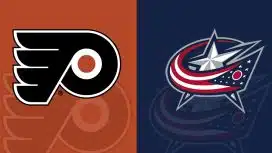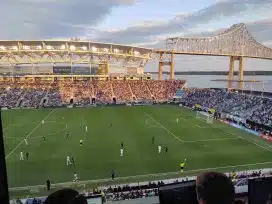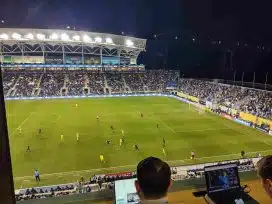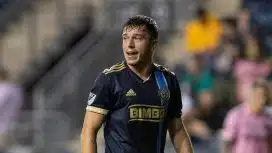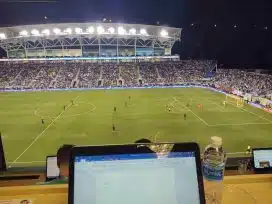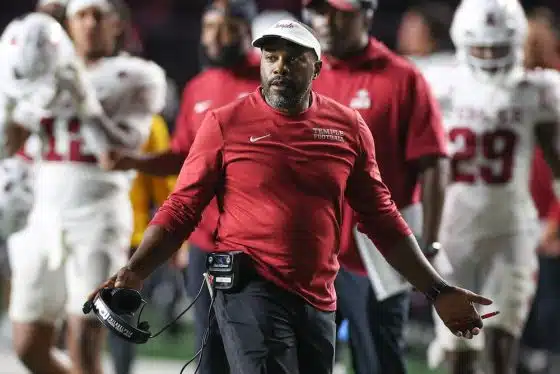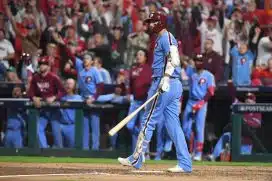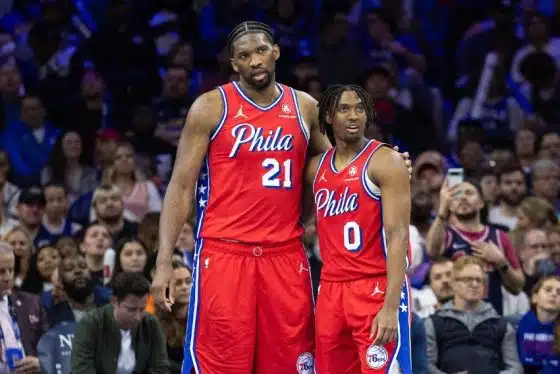Flyers
Flyers Greatest Moments: The Red Army Game
By Kevin Durso, Sports Talk Philly editor
In the season following the Flyers second consecutive Stanley Cup win, they were the talk of the league and it wasn’t necessarily in the best light. The Broad Street Bullies were hated across the league as the expansion-age team that would impose their will and fists on any opponent. League officials scowled at the thought of handing over the Stanley Cup to the Flyers.
But all bets were off during the 1976 Super Series when HC CSKA Moscow, also known as the Red Army Club, came to play the final game of the series with NHL teams at the Spectrum in Philadelphia.
The Red Army Club was joined by Krylya Sovetov Moscow — also called the Soviet Wings — and the two teams played eight games combined against the NHL in the 1976 Super Series. The Flyers were the last NHL team on the schedule on January 11, 1976. The Soviet Wings had defeated the Pittsburgh Penguins, Chicago Blackhawks and New York Islanders in the series already and had lost to the Buffalo Sabres, 12-6.
But the Red Army Club was the much more well-known and dominant team in the Soviet League, featuring top Russian players like Aleksander Maltsev, Valeri Kharlamov, Boris Mikhailov and Vladislav Tretiak — considered to be the greatest goaltender in the world. They had remained dominant through the Super Series to that point, defeating the New York Rangers, 7-3, playing to a 3-3 tie with the eventual Stanley Cup champions in 1976, the Montreal Canadiens, and defeating the Boston Bruins, 5-2.
Given the lack of success that NHL teams were having against the Soviets, the entire league and much of the world was in support of the Flyers to come away victorious and to give the Soviets a beatdown on the ice in the fashion they had to so many opponents in the NHL.
It was also no secret the way the Flyers were also perceived in other parts of the world either. At the 1972 Summit Series, Flyers captain Bobby Clarke, playing for Team Canada, had slashed and injured Kharlamov and that created a perception to the Soviets that the Flyers were barbarians.
From the beginning of the game, the Flyers controlled the pace and didn’t allow the Soviets to use their speed to work through the neutral zone. Fred Shero had a strategy for facing the Soviets. Rather than letting them play at their pace, use their speed and chasing them all over the ice, the Flyers maintained positioning and stacked the blue line, putting a halt to any momentum the Soviets could gain with their typical style of physicality. This style started to frustrate and anger the Soviets.
Shortly after killing off a penalty to Ed Van Impe midway through the period, the Flyers defenseman returned to the ice and laid a thundering hit on Kharlamov, who went down and laid on the ice for several moments. No penalty was called despite the Soviets’ anger and Soviet coach Konstantin Loktev pulled his team from the ice.
Flyers chairman and owner Ed Snider immediately went to the Soviet locker room, demanding that the team return to the ice and finish the game. As the Soviets continued to object, Snider threatened to not pay the Soviets for the game and the team returned to the ice moments later. They were assessed a delay of game penalty for leaving the ice.
When play resumed, the Flyers greeted the Soviets with even more determination and a goal. Just 17 seconds after the game resumed, Reggie Leach scored on the power play on a deflection to give the Flyers the lead at 11:38. With 2:23 remaining in the period, the Flyers took a 2-0 lead on a goal by Rick MacLeish on a breakaway.
The onslaught continued in the second, when just 2:44 into the period Joe Watson scored shorthanded on a rebound to make it a 3-0 game. The Soviets got on the board at 10:48 with a goal by Victor Kutergin to make it 3-1.
At 4:01 of the third, the Flyers capped the scoring with a power-play goal by Larry Goodenough. In the 4-1 win over the Soviets, the Flyers allowed just 13 shots to a team that had been so dominant throughout the rest of the Super Series. The Flyers, meanwhile, fired 49 shots on goal toward Tretiak. Wayne Stephenson, getting the start in goal for an injured Bernie Parent, picked up the win.
As the first team to defeat the Red Army Club, the Flyers were celebrated around the hockey world. It was also a monumental win for the Flyers as a franchise. This was really the pinnacle of the Broad Street Bullies, a team that had not only won the Stanley Cup twice, but had also topped the hockey world by beating the Soviets. They seemed poised to make another run and did reach the Stanley Cup Final for a third straight season before being swept by the Montreal Canadiens.
The Flyers had demanded respect and playing in Philadelphia was always a challenge for any NHL team that had to deal with the physical style on the ice and the bedlam within the Spectrum on top of it all. The Soviets learned it the hard way.
Milt Dunnell wrote in the Toronto Star following the game that the Soviets ultimately watched their tactic of leaving the ice backfire and got what any other team should expect coming to Philadelphia.
"The Moscow Musketeers had to put a big fat zero on their aptitude test by pulling one the dumbest tricks in sports. They hauled their team off the ice,” Dunnell wrote. “Loktev knew the conditions before he came. Nobody loves playing in Philadelphia. Once he accepted a game with the Flyers, under NHL rules, with an NHL referee, he was in the same boat as the Toronto Maple Leafs or Vancouver Canucks when they come to town. Loktev wanted his team to know what it's like to play the Flyers in Philly under NHL conditions. Well…that's what it’s like.”
Philadelphia has lived up to that reputation for years. Around the league, it has been a place no one wants to play. The Flyers continued to live up to that physical style of play for many decades too. The game has evolved and the Flyers have had to change up their style to what today’s game has become, but in that time, it was a sign that the Flyers were really one of a kind in that moment. They were the physical beasts that could match up — and beat up — any team that stepped on the ice with them.
You can watch highlights from this historic game below:
Our series of Flyers Greatest Moments will continue on Monday with a look back at the team’s first win in an outdoor game in 2019, the Stadium Series held at Lincoln Financial Field.













